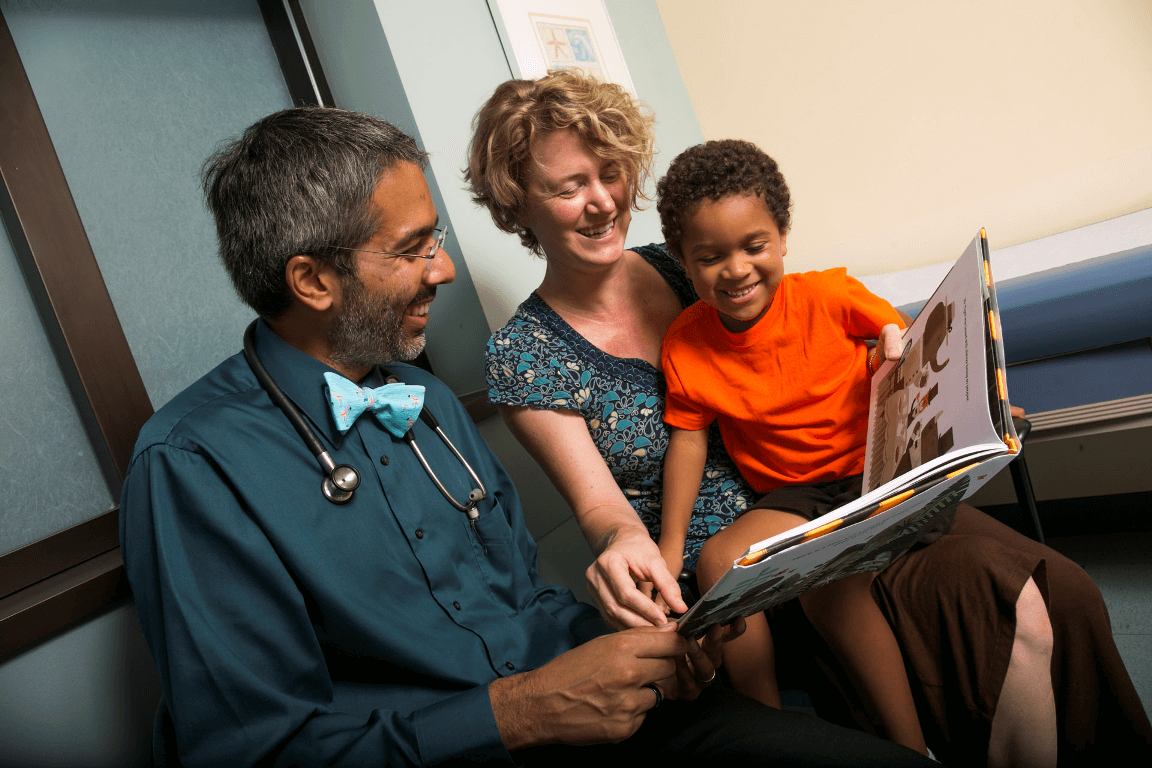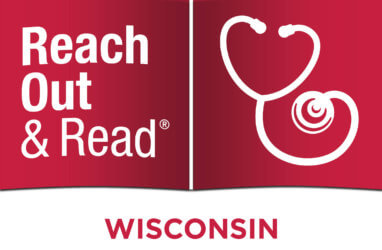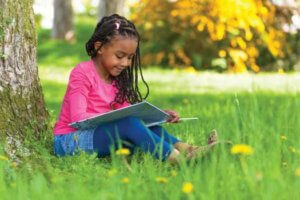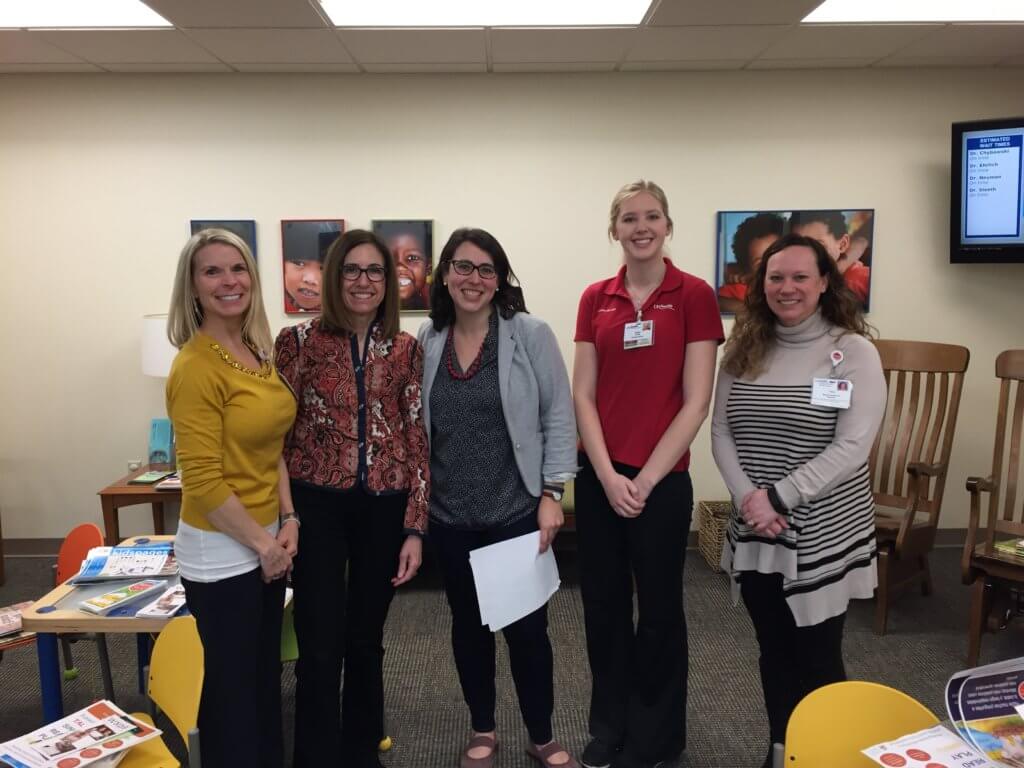Friday, January 24, 2020, was a big day for the Vel R. Phillips Youth and Family Justice Center and Reach Out and Read Wisconsin. In partnership with City of Milwaukee’s Office of Early Childhood Initiatives, Too Small to Fail, an initiative of the Clinton Foundation, unveiled a Family Read, Play and Learn space at the Justice Center in Milwaukee.
The child literacy space in the family court waiting area at the Justice Center is the first of its kind in the nation created by Too Small to Fail. The literacy space is part of their larger program to raise awareness about the importance of early literacy, brain development and early learning. After the ribbon-cutting ceremony, Ms. Clinton chatted with parents, read to several children and then participated in a community forum. Additional panel participants sharing their messages of the importance of early literacy promotion and power of collaboration were Dea Wright, Director of the City of Milwaukee Office of Early Childhood; Tom Barrett, Milwaukee Mayor; Maxine White, Chief Judge of Milwaukee County; Ramona Gonzales, President of the National Council of Juvenile and Family Court Judges; Chelsea Clinton, Vice Chair of the Clinton Foundation and Dipesh Navsaria, MPH, MSLIS, MD, Medical Director of Reach Out and Read Wisconsin.
Spaces like the one at the Justice Center are designed to meet parents where they are and help them make the most of everyday moments that can have a big impact on their child’s development. Too Small to Fail has worked to create similar spaces at laundry mats, including one in Milwaukee and playgrounds across the country. The spaces provide a much-needed early learning environment, according to Ms. Clinton.
“A fundamental test for our country is whether or not we can make early learning available and real to all kids and families,” she said.
After the event at the Justice Center, Ms. Clinton and other representatives from Too Small to Fail visited Sixteenth Street Community Health Centers, Chavez Clinic. Chavez Clinic was one of the first clinics to launch a Reach Out and Read program in Wisconsin. In their more than 20 years of participation in the evidence-based, clinical intervention, more than 100,000 books have been given to children in Milwaukee and Waukesha counties. The now four participating Sixteenth Street Clinics serve more than 10,000 young children each year. Emilia Aranda, MD Director of Pediatrics for Sixteenth Street Community Health Centers and Reach Out and Read Wisconsin advisory council member, provided a tour of the pediatrics clinic for Ms. Clinton. Afterward, Ms. Clinton read to a group of children and took pictures with Chavez Clinic staff.
In celebration of their five years of collaboration with Reach Out and Read National Center to advance early literacy and promote early brain development, Too Small to Fail has donated 25,000 copies of the bilingual book DJ’s Busy Day to Reach Out and Read Wisconsin.
These books will be delivered to Reach Out and Read participating clinics throughout the state in the upcoming months. In the meantime, a special thank you goes out to Books4School for storing the books until they are delivered.



















